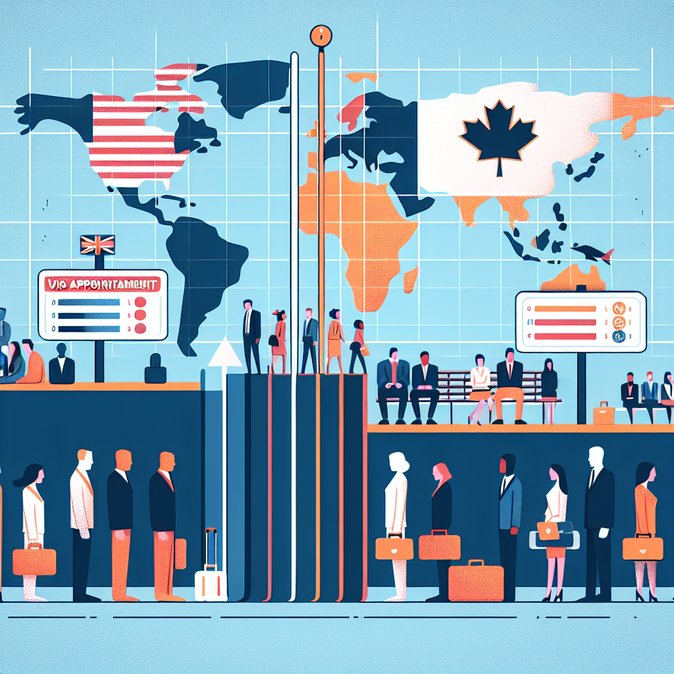
Access to Germany’s visa system remains heavily skewed against applicants from the Global South, according to a peer-reviewed study released on 24 November by the German Centre for Integration and Migration Research (DeZIM), the University of Flensburg and the European University Institute. Researchers analysed anonymised booking data from 115 German embassies and consulates and found a strong correlation between an applicant’s home-country GDP and the probability of obtaining an appointment within 30 days.
Average waiting times in Burkina Faso (75.7 days) and Madagascar (71.3 days) were the worst in the sample, while applicants in Singapore and Uzbekistan typically secured a slot in under three days. The paper calls Germany’s opaque queuing system a competitive handicap, warning that highly-skilled workers may abandon the idea of relocating if they cannot predict processing timelines.
![New study exposes stark inequality in access to German visa appointments]()
Unlike the United States, which publishes daily wait-time dashboards, Germany provides no live data. The authors urge the Federal Foreign Office to create a public tracker on its Consular Services Portal and to redeploy staff to missions with the longest delays. They also recommend automated overbooking tools—similar to those used by airlines—to keep appointment calendars full when applicants cancel at short notice.
For employers the findings are more than academic. Engineering, IT and healthcare companies already report lead times of six to eight months from contract signature to arrival on site. Persistent appointment bottlenecks could undermine recent legislative reforms such as the Skilled-Worker Immigration Act and the expanded EU Blue Card.
The report has prompted the opposition CDU/CSU bloc to table a parliamentary question on whether AI-based triage—currently in pilot use in Manila and Bengaluru—can be rolled out faster to consulates in sub-Saharan Africa.
Average waiting times in Burkina Faso (75.7 days) and Madagascar (71.3 days) were the worst in the sample, while applicants in Singapore and Uzbekistan typically secured a slot in under three days. The paper calls Germany’s opaque queuing system a competitive handicap, warning that highly-skilled workers may abandon the idea of relocating if they cannot predict processing timelines.

Unlike the United States, which publishes daily wait-time dashboards, Germany provides no live data. The authors urge the Federal Foreign Office to create a public tracker on its Consular Services Portal and to redeploy staff to missions with the longest delays. They also recommend automated overbooking tools—similar to those used by airlines—to keep appointment calendars full when applicants cancel at short notice.
For employers the findings are more than academic. Engineering, IT and healthcare companies already report lead times of six to eight months from contract signature to arrival on site. Persistent appointment bottlenecks could undermine recent legislative reforms such as the Skilled-Worker Immigration Act and the expanded EU Blue Card.
The report has prompted the opposition CDU/CSU bloc to table a parliamentary question on whether AI-based triage—currently in pilot use in Manila and Bengaluru—can be rolled out faster to consulates in sub-Saharan Africa.










